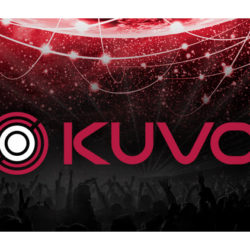A few months ago, I decided to try out the new Rekordbox 3 DJ software from Pioneer. I was leaving to DJ at Burning Man and I wanted to make a few USB sticks to play from, just in case the conditions were too harsh for use of Traktor and my laptop.
When I downloaded Rekordbox 3, I was instructed to create an account with a service called KUVO to enable full functionality of the program. At the time, I thought this was a bit odd, but I created the account and continued to use the program. A few months later, I saw the announcement that KUVO had joined with Pioneer DJ. I also thought this was a bit odd because I thought the service (which I knew nothing about) was already being used by Pioneer DJ. Finally, I started to see conversations in my Facebook feed by DJs who were upset about the KUVO service. At this point, I started to educate myself about what KUVO is, and why it was being used.
A Little Backstory
Before getting too far into this, I should probably state Pioneer DJ’s relative position in the DJ industry as a manufacturer. For the last 10+ years, Pioneer DJ has been the #1 worldwide manufacturer of gear in the DJ industry. Year by year they have managed to increase their market share with industry leading products such as the DJM-900NXS DJ mixer, CDJ-2000NXS media player & Rekordbox 3 DJ software. Mark Grotefeld, Pioneer’s head of marketing in Europe, claims to have set up over 80% of the world’s professional DJ booths. And as a working DJ who plays a wide range of clubs, I would have to agree with this statement.
When I was a Product Manager at Behringer, I had regular access to the MI Sales Track data for DJ product sales by month. When planning new products, we noticed that both DJ mixers and media players (CDJs) were starting a downward trend. With the rising popularity of DJ MIDI controllers, both mixers and media players were selling less and less with every company except one, Pioneer DJ. This meant that month by month, Pioneer was taking a larger market share, thus tightening its stranglehold on the DJ industry.
Pioneer’s DJ gear is now the industry standard around the world. Most professional touring DJs now include the Nexus DJ setup in their performance rider. This means that most clubs who host these DJ’s must purchase this gear or else risk breaking the contract with DJ’s who regularly play their clubs. The result of this is a large network of Pioneer DJ equipment, which spans the globe.
What’s Happening Now
So you may be wondering why I have given you all of this backstory on Pioneer DJ gear. The reason is because now Pioneer DJ has created “the perfect storm” for the implementation of the new KUVO entertainment service. Through several methods, KUVO collects data on the music that DJ’s play. It can track which DJ plays which song and at what time. KUVO also transmits this data to their mobile app where fans can then look up what songs were played by their favorite DJ, thus creating a tighter connection with their favorite artist.
KUVO has stated that the collection of this data will put more money into the pockets of the artists who make the songs, which are played in clubs worldwide. And for the most part, this is true. Now fans can get access to the playlist of the worlds biggest DJs, thus creating total transparency of their sets. This will shine the light more on the artist and away from the DJ playing the track. Through the KUVO service, fans will have a link to the song played and will be able to immediately buy it.
DJs, Big Data and Marketing
On the surface, this looks like a very good tool for artists, but after thinking about it, DJs and artists could have a huge conflict with this service. KUVO and Pioneer DJ stand to make the most money out of anyone in this whole equation because of one thing: sales of marketing data. KUVO will now have more accurate marketing data for dance music than any other player in the industry, and I am willing to bet that they will be selling it for a premium. This is the same way that Facebook created their fortune and I expect that this service will generate more income for Pioneer DJ than any mixer or media player they will ever manufacture. They now know what DJ played what song, and how popular it was with the audience. They also know how many downloads were generated as a result of the use of their service.
This data is as good as gold with advertising and marketing agencies worldwide. Previously, these companies had to rely on statistics from companies such as Billboard, ASCAP and BMI to gauge how popular a song is. As we have all seen with modern television, pairing the right song for an advertisement could make sales of a product (and the song) go through the roof.
Let me illustrate how this will work. Let’s say DJ Tiesto plays a set in Berlin for 20,000 fans. And during his set, he plays a new song from Calvin Harris, which gets a huge crowd reaction. Fans can now look up DJ Tiesto’s set list, see which song was played and then download the new Calvin Harris track. Let’s say that of the 20,000 fans in attendance, 1,000 download the new song as a result of the KUVO service. This means that KUVO facilitated sales of the new song, and I can definitely see them charging a premium to record labels that want to be included in this service.
On the other end, lets say that headphone manufacturer Sennheiser decides to create a new marketing and advertising campaign around their new line of DJ headphones. With this campaign, they are looking for the best song to include in their advertisement, which will air in Germany. They can then contact KUVO to inquire about which song has been most popular with dance music fans in Germany, particularly Berlin. KUVO can accurately tell them (for a fee) that the new Calvin Harris song has been popular ever since DJ Tiesto played it in front of 20,000 fans. The result is that, now Sennheiser will feature the new Calvin Harris song in their new advertising campaign.
The data generated by this service is so accurate, that advertisers will pay a premium for this data. I don’t think it’s out of the question that KUVO and Pioneer DJ could start seeing the kind of money that Facebook sees on a regular basis, in the coming years. Just for reference, Facebook was recently valued at $190 billion dollars, making it one of the largest companies in the world. In comparison, Pioneer DJ was recently sold to the private equity firm KKR for $550 million dollars. I estimate that Pioneer DJ will soon be valued over $1 billion with the inclusion of the new KUVO software. This is big business for Pioneer DJ and they know it.
What’s It All Mean?
Is this a good thing? I really can’t answer that question. As a DJ, I do not like others knowing my whole set list. I always keep several songs that are secret weapons. I covet these songs and use them in my sets to get a good crowd reaction. Part of the crowd reaction comes from them never hearing the song, and being impressed by this new sound. It’s a habit that goes all the way back to when I was playing vinyl, I always kept my best tracks a secret. I used to put stickers over the labels of my most prized songs in an effort to keep them anonymous from other DJs looking over my shoulder.
As a producer, I feel that this service could be a big win. Knowing that my track could get bigger exposure with audiences worldwide could really give artists new exposure that they didn’t have before. A new star could be born by a big name DJ playing a little known producers song for the right crowd. This song could be downloaded by thousands (maybe millions,) featured in advertising and could generate a living income for many of aspiring artists.
Regardless of what you think of the service, KUVO may be here to stay and will most likely revolutionize the dance music scene as we know it. The “perfect storm” created by the prevalence of Pioneer DJ’s products has created a large network, which KUVO can pull very valuable data from. Be prepared, electronic dance music is about to be changed forever. For better or worse is merely perspective.






Join the discussion
comments powered by Disqus